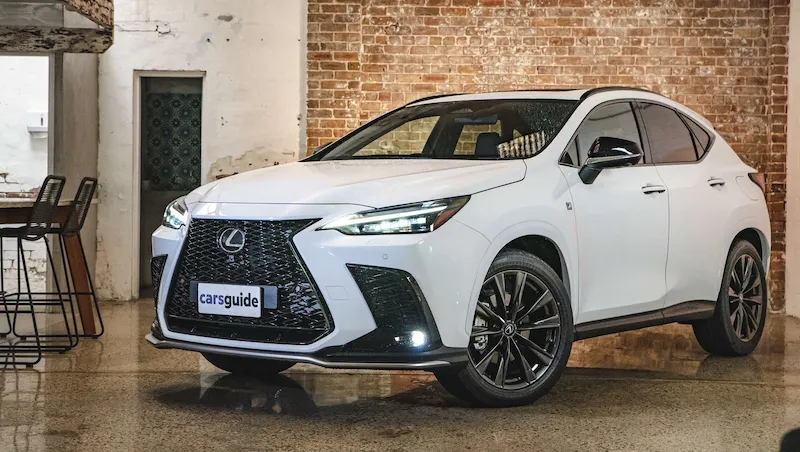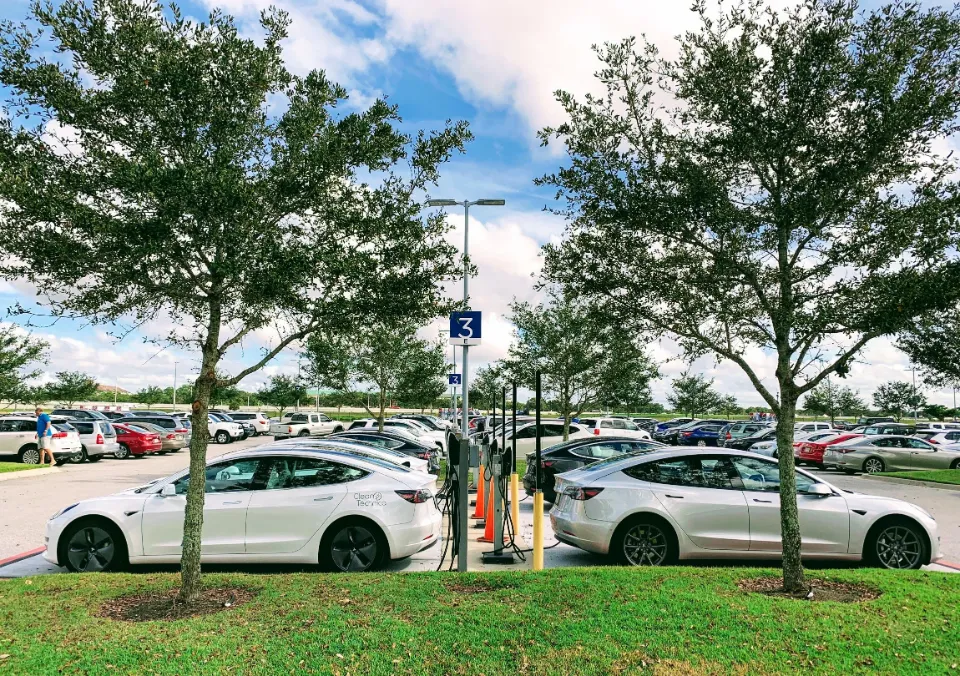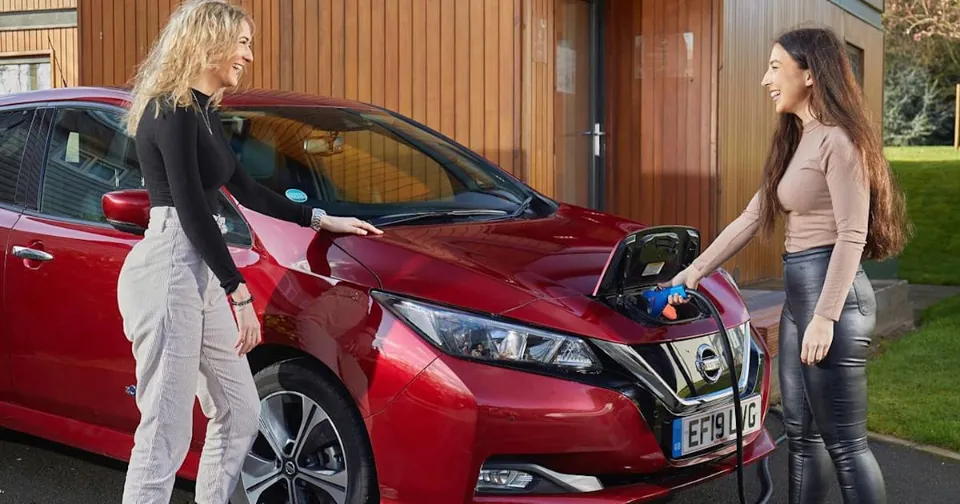Which one is better for you when talking about Hybrid Vs Electric Car? Read on for the main differences between hybrid cars and electric vehicles.
Hybrid Vs Electric Car: Electric vehicles are powered solely by electricity, which can come from a power grid, a solar array, or kinetic energy from braking. Standard hybrids rely on kinetic energy and gasoline, whereas plug-in hybrids rely on both of those sources.
Understanding Hybrid Vs. Electric Vehicles
Electricity vs. hybrid cars, you can immediately see the disparities between the two. In contrast to a hybrid model, which can pull into any gas station, an electric vehicle needs to be plugged in to recharge.
In contrast to an electric car, which only has a battery and an electrical system, a hybrid car still comes with issues like oil changes and engine failure. You’ll also notice a difference in terms of performance, as an electric model will accelerate more quickly and smoothly than a hybrid. Check for hybrid vehicle benefits.
The electric motor is superior to a hybrid, which is still an improvement over a conventional gasoline-powered vehicle. After learning about the differences between electric and hybrid vehicles, you might decide it’s worth the extra money to splurge on an electric model rather than opt for a straightforward hybrid.
Here is a quick look at Hybrid Vs Gas Car. A gas-powered car only has a traditional gas engine, while a hybrid vehicle also has an electric motor. Since hybrid vehicles can switch between their gas and electric motors while being driven, they typically have higher fuel efficiency than their gasoline-powered counterparts.

What is the Difference Between Hybrid and Plug-in Hybrid?
In contrast to a hybrid, plug-in hybrid (PHEV) model, the two have a few significant differences. By producing energy through mechanisms like regenerative braking and cruising to a stop, a hybrid completely depends on itself to refuel its battery. It makes use of its battery to ostensibly increase your fuel efficiency.
Editor’s Advice: How Much Does a Hybrid Battery Cost? Compared to conventional gasoline-only vehicles, hybrids use different batteries, and their prices range from $1,000 to $8,000. The final cost you’ll incur is determined by the make and model of your car as well as whether you choose a new or refurbished battery.
A hybrid car runs on both gas and electricity. The face of environmentally friendly driving options has been drastically altered by this technology. Read on to find out more about Hybrid Car Batteries.
To recharge its battery, a plug-in hybrid vehicle must be plugged in; otherwise, it cannot be operated without emitting any emissions. Depending on the car, this distance can occasionally be as short as 10 to 30 miles. (Are hybrid cars good for long distance driving? How far a typical hybrid can travel will be covered in this blog.) Compared to a conventional hybrid, a plug-in hybrid will cost more to purchase. The money you’ll save on gas will, however, cover that expense, and you can also benefit from any applicable tax incentives.
A hybrid and a plug-in hybrid both have an internal combustion engine and a battery as their primary power sources. While the other uses it as a backup power source for the engine when the battery is running low, one uses the gasoline engine as its main source of energy. Which model fits your lifestyle best is entirely up to you.
You may want to know: We’ll examine the four main types of hybrid vehicles in this article and discuss what makes each one distinctive. They are Mild Hybrids, Full Hybrids, Plug-In Hybrids, and Electric Vehicles with Range Extender Hybrids. Continue reading.

Learn What Separates An Ev Vs. Plug-in Hybrid
In between electric and gasoline-powered vehicles is the plug-in hybrid. hybrid cars. It can be entirely electric-powered (like an EV) or run entirely on gas (like a hybrid). Similar to an electric model, you must also charge it, though not for as long as you would with an EV.
Even though a plug-in hybrid may seem like the best option, it still emits harmful emissions, so your carbon footprint is not entirely eliminated. In terms of tax incentives, all-electric models outperform PHEVs. Additionally, they are more affordable to operate because you won’t have to spend as much money on gas to get around.
Related: How Long Do Hybrid Car Batteries Last? About 100,000 miles should be covered by the majority of hybrid batteries. Some owners are able to increase this number to 200,000 with excellent maintenance.
Charging Levels Make a Difference With Ev Vs. Plug-in Hybrids
Hybrid vehicles don’t need manual charging, but plug-in hybrid and all-electric cars do, so you’ll need to buy a charger for them. A Level 3 charger will recharge your car’s battery more quickly than the other two of the three charging levels.
A Level 1 charger is included with many models, which you can use in your home outlet. However, it will only extend the range by a few miles per hour. This approach is occasionally acceptable for plug-in hybrid owners, but it makes no sense for all-electric vehicle owners. The majority of them favor installing Level 2 chargers in their residences to drastically reduce charge times.
Last but not least, a Level 3 charger, which you can typically find around town, can completely recharge your range in an hour. These charging stations can be pricey, but if you’re in a bind, they’re a great replacement for your slower, at-home charger.
Editor’s Tip: Here’s the answer to “How Do Plug-In Hybrid Electric Cars Work?” In plug-in hybrid electric vehicles (PHEVs), an internal combustion engine (ICE) is powered by another fuel, such as gasoline, while an electric motor is powered by batteries. The ICE, a wall outlet, a charging device, or regenerative braking can all be used to charge PHEV batteries. Usually, the car runs on electricity until the battery is almost completely gone, at which point it switches over to using ICE.
Suggested reading: Thankfully, the market for used hybrids is rich enough for us to pick and choose those with the highest safety and reliability ratings, plus low overall cost of ownership. The best used hybrid cars are those listed here.
Pros and Cons of Hybrid Vs. Electric Cars
Consider these factors when deciding which is better for you, hybrid or electric cars:
- Homeowner vs. renter: To charge your electric vehicle or plug-in hybrid electric vehicle (PHEV) overnight, if you own your home, you can buy and install a charger. Unless you rent and live in a neighborhood that already has chargers or is willing to add them, this might not be an option for you.
- Charging stations en route: Make sure there are plenty of charging stations available along the route if you intend to take long road trips and are thinking about an electric vehicle. If not, a hybrid might be a better option for you to avoid getting lost.
- Costs: Hybrid vehicles can cost more to maintain because they need to take care of both an electric system and an internal combustion engine. Additionally, a hybrid will typically cost less up front the less dependent it is on electric power. Fully electric cars can even cost more up front, but because they have fewer moving parts, they are less likely to break down. Nevertheless, due to the higher cost of EV labor and parts, repair costs for electric vehicles can be high.
Whichever you choose, hybrids and electric cars share these characteristics when compared to their gasoline-powered counterparts:
- They’re more expensive upfront than gas-powered cars
- They may be eligible for rebates or tax incentives that can help offset their higher cost
- They allow you to use less gas-powered fuel
- They hold their value longer
Editor’s tip: Just like with all cars, your Prius’ battery will eventually need to be replaced. But when will that be? How long do Toyota Prius batteries last?
Frequently Asked Questions
What is a Hybrid Car in Simple Terms?
Between traditional internal combustion engines and all-electric vehicles, hybrid vehicles serve as a transitional technology. Along with using gasoline, these vehicles rely on a variety of energy sources.
Can Hybrid Cars Run on Electricity Only?
Absolutely no engine use is necessary for plug-in hybrid vehicles to function. Although they might have a button for that option, standard hybrids typically cannot because of the size of the battery. The feature will be disabled and the gasoline engine will start when the vehicle accelerates quickly, such as when turning onto a highway.
Should You Buy An Electric Or Hybrid Suv?
Where you live and how you use your vehicle will determine whether you choose an electric or hybrid SUV. A hybrid model is more dependable if you consider yourself someone who might forget to plug in their all-electric vehicle each night when it is running on empty.
To lessen the likelihood of this ever happening, the 2023 Cadillac Lyriq Electric has a range of more than 300 miles. With either of these options, you can choose how much you want to reduce emissions while still helping the environment.
READ ABOUT





